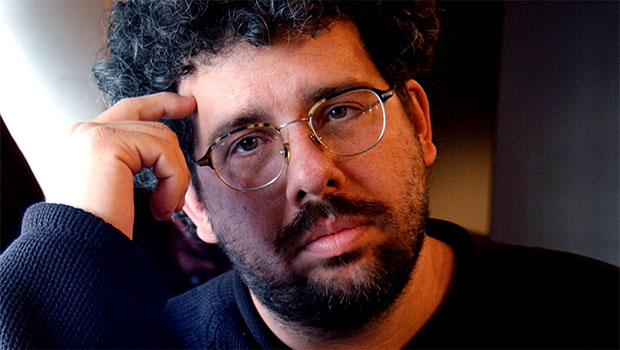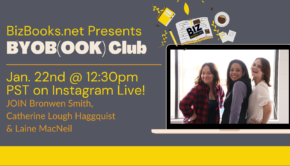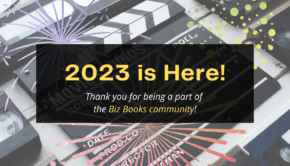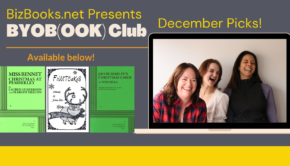The Biz Interview: Neil LaBute
From theatre to film and all creative points in between, Neil LaBute has engaged audiences through the stage and the screen with works like In the Company of Men, Your Friends & Neighbors, Bash, and reasons to be pretty.
We caught up with Neil LaBute in advance of his stop in Vancouver for a live reading of his play, The Way We Get By and asked him for his insights into effective plays, his acclaimed career and what he enjoys about Vancouver.
________________________________
Can you start by telling us a little bit about how your career first got started?
Like many people, I was an overnight success ten years in the making. After I got out of graduate school, I started teaching while also having productions of my work done in various theaters, mostly in Chicago to start. It was not easy to take advantage of those productions, however, as I was living elsewhere and it was not until I finally decided to make a film that my theater career really took off. After I directed In the Company of Men people were interested in my work in a more global way, including my plays. That film allowed me to get productions in New York and London of the play Bash and my career in both film and theater expanded very rapidly after that. I have since tried to maintain a relatively even commitment to both plays and films, with television becoming the latest expansion in my work. So far I’ve been very lucky to do a lot of what I wanted to do in my life, at least from a creative standpoint.
What projects are you currently involved in these days?
I’m in Vancouver working on a television show called Van Helsing about Greenpeace and global warming. Actually, it’s about vampires and the apocalypse; the Greenpeace thing just sounded really noble in my mind. A super-volcano does create a shroud of ash over much of the northwest in Van Helsing so in a sense it’s about global warming but the rest of that was a complete lie. After this, I’m going to direct Uncle Vanya in Germany and then be in New York in the fall for the presentation of a new play of mine called All the Ways to Say I Love You starring the amazing Judith Light. There’s also the possibility of a new film in there as well but I’ve become very zen about making movies—they happen when they happen and I don’t chase after them like a madman any longer. I’ve made ten already, more than half of which are pretty good, and I’ll make another one when the time is right.
From your experience as a playwright, what are the three most important elements for writing an effective play?
The first most important element of writing a play is actually writing it. People love to talk about writing and love to sit in coffee shops and have people watch them writing but actually writing something is very different. So, first, write the damn thing.
Second most important thing is to not be afraid of re-writing. I know people who hate to re-write — some hate it so much that they don’t ever do it and I’m including some very famous and successful people. I think this is a mistake. I’ve never once written something that was at its best the first time out. Not one time, and I’ve been doing this for almost thirty years. So, learn to re-write. Give it a try. Think outside your little box.
Third most important thing is seeing and hearing your play on its feet. I don’t mean just get the thing read because that’s good, too, but to see it in a performative state, that’s the purpose of a play (even though I believe it should be very enjoyable to read as well, simply as literature). This, of course, may mean that you have to put it on yourself if no one else wants to — be it a theatre company or a producer or group of students at a local college — and that’s exactly what you should do. Go watch an old Mickey Rooney–Judy Garland movie and see how it’s done: get somebody’s dad who has a barn and go put on a show in front of whomever will come watch it. That experience will be invaluable.
As someone who has been involved with creative work in different forms of media – film, television, and theatre – what is rewarding about each of these platforms for you?
Each one is different and each one is special. I hope I get to continue working in all three of them, along with radio theater whenever the chance arises (not very often in the U.S. but on occasion).
I love how fast you work in television; very quickly you see a show come together and a longer-form story being told. You also get to work with a variety of writers and directors in a way you don’t experience them in other mediums.
Film is a beautiful collaboration with a group of people in a very limited time frame and I’ve enjoyed the outings I’ve had very much — that said, there is a pressure to film and television that I haven’t experienced in theater and I love the privacy and the steady, step-by-step process that comes with rehearsing a play.
Theater is where I started and remains my religion. The other mediums have been artistically and financially rewarding, an international passport to working with other artists in other countries and a wonderful way to tell stories that don’t belong on stage. That said, the theater is where I belong and find myself most fulfilled and happy.
You will be visiting Vancouver for a live reading of your play, The Way We Get By. What can you tell us about this play and the inspiration behind it?
The Way We Get By is a two-hander (two characters) that takes place in ‘real time’ on the stage; the 90 minutes you spend with the characters is the 90 minutes we see of their lives. It is a ‘morning after’ play, where two people find themselves together against their better judgement and face the crossroads of ‘should we go on or should we leave this where it is?’ I set out to write an unabashedly romantic story and think I succeeded; it also became the basis for a television series I recently did called Billy & Billie, although the characters in each are different people and not a continuation of one story into the other.
You have been involved with several film and television projects that have been produced in Vancouver. What advantages does Vancouver offer to the film and television industry that other cities don’t have?
Well, if you need rain in your work you’ve come to the right place. Actually, it’s a beautiful place to live and work—the breadth of locations is amazing and people are just generally nice to work with and that’s a huge part of the process for me—do I want to spend time with this person and create something with them? I made a movie here ten years ago that was poorly received and I still take sh*t for it (The Wicker Man) but I had a blast making it. Nothing but good memories about the city and the creation of that project. Now, a decade later I find myself shooting on several of the exact same locations and they work wonderfully well for a whole new world. That’s a pretty lovely and rare thing. You also have just enough good used bookstores and independent cinemas to keep me going when I’m away from home — I also love to walk through the International Village Mall because it is one of the strangest buildings and collection of stores I’ve ever seen in one place.
What’s the biggest challenge you’ve faced in your career and how did you deal with it?
The biggest challenge of your career is always yourself: getting your voice out there and then if you do, doing it again. And again. And one more time. And then not repeating yourself and remaining relevant in a fickle and ever-changing creative landscape. Trying not to sell out and trying to do good work but needing money to survive and finding it harder and harder to make yourself and your producers and the studio and the public happy. Listening to the critics is also tough but important — in case they say something worthwhile but not being brutalized by them, those people who sit on the sidelines (or heckle you from the cheap seats of the Rio Theatre) rather than getting out on the playing field themselves. I love this job but I do think of it as a job and believe that I’ve worked hard to get anything that I’ve received through my talents and perseverance. I must say, though, that I continue to love what I do and I’m always ready for the next experience rather than wondering why I’m doing what I do or just biding my time until my next few vacation days. I’ve been very lucky in that one respect.
What advice would you have for aspiring playwrights?
The same that Chekhov gave to Gorki: “Write! Write! Write!”
Nothing replaces sitting on your ass and doing the work. Let the pages pile up. Get to the end and then start over again. This is a blue-collar business paid for by white-collar patrons. I hope that changes in the future and of course it’s not completely true but it’s not untrue, either. The ‘blue-collar’ part I truly believe, though; you have to eventually stop wanting to be a playwright and become one. Roll up your sleeves and get started. Turn a blank piece of paper into something extraordinary. It’s not magic. It’s not alchemy. It’s just good old-fashioned work.
What plays, books, and authors have been influential in your career so far?
Everything I’ve read and seen and listened to. All of it. The sh*t with the gems. I’ve learned as much about what not to do by bad or, even worse, mediocre material as I have by the good stuff. I could roll off a list of names and it wouldn’t be enough but even one good film or book or play or album by someone is better than nothing at all. It’s more than most people will ever create. I admire the creative process — I grew up working on a farm and I like getting my hands dirty; I just happen to prefer them covered in ink rather than soil but it’s the exact same principle. You want a good film? La Dolce Vita. You want a good play? Top Girls. You want a good novel? Disgrace. You want a good album? Revolver. You want a good opera? Hell if I know. Carmen, I suppose. Or Madame Butterfly. The one where the two lovers have a falling out and they sing a lot and then someone dies. That one.
Where can we find out more about you?
On the internet, where else? That Pandora’s Box of the 20th and 21st centuries. I feel like Oppenheimer when I point a finger at that world-wide-web and say “watch out” but here I am saying it. It’s all fun and games to look sh*t up on YouTube and to download movies for free and get your news 20 minutes ahead of your neighbor, but be careful out there, people. There are things that go bump in the night and I think the internet is one of them. I know I sound old and backward and like I should hang out with Jonathan Franzen more often, but all I’m saying is “Be careful what you wish for.”
________________________________
Thanks to Neil LaBute for speaking with us!
You can join him for a live reading of The Way We Get By on June 16th at Studio XX in Vancouver. For tickets, please visit neillabute.brownpapertickets.com.
















